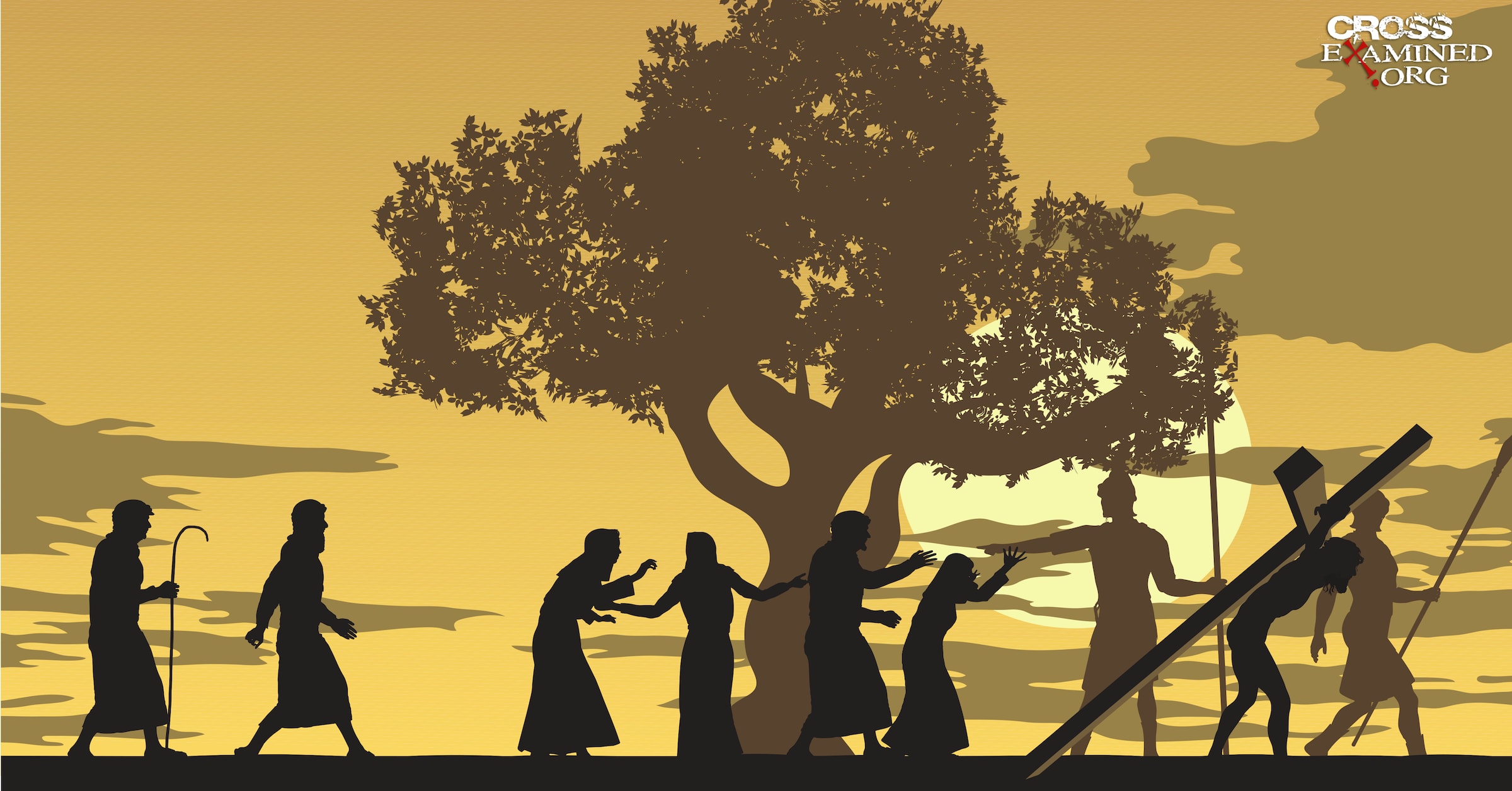Why are we so interested in murders? Some of the most popular podcasts, videos, and news headlines are about high-profile homicides. We are often consumed by the prime suspect who police often call a “person of interest.” Right now, are the headlines fixated on Brian Laundrie? Where is he? Did he do it? If so, why? And will he be served justice?
Unfortunately, in the long run, the person of interest is often remembered far more than their victims. We remember names like Charles Manson, Jeffery Dahmer and Ted Bundy, but we often forget those they killed.
But what if there is one big exception to that typical outcome? What if the most memorable and influential name in human history is not a villain, but a murder victim?
Unsolved homicide detective J. Warner Wallace exposes exactly that case in his astonishing new book Person of Interest . Wallace shows the unprecedented impact that a murdered Jewish preacher from an obscure corner of the former Roman Empire has had on the world over the past two thousand years.
Jesus of Nazareth is not only the central figure of the world’s largest religion, he is also the central figure of influence in all of human history. In a book packed with more than 400 of his own explanatory drawings, Wallace demonstrates that even if all Bibles and manuscripts were to suddenly disappear from the planet, the “explosive” appearance of Jesus and his essential teachings could be reconstructed from the “fuse” of ancient history and the “effects” of the past two thousand years.
Consider for a moment the impact Jesus had on literature . More has been written about Jesus than any other character in history. To date, more than 109 million books have been written about Jesus (George Washington is a distant second with nearly 59 million books). No one, and I mean no one , has inspired authors and writers like Jesus of Nazareth, and this influence started early.
Wallace illustrates a robust list of Christian and non-Christian voices found in ancient manuscripts from the first centuries of the Common Era – more non-Christian than Christian – describing Jesus and his followers. From these early voices, the entire story of Jesus can be reconstructed even if all the New Testament manuscripts had been destroyed.
Jesus dominates another form of literature: screenplays. Wallace brings together the films made about Jesus of Nazareth into an illustration that demonstrates Jesus’ unprecedented impact on film producers ( The Jesus Film , for example, remains the most translated and viewed film of all time). But there is more. Great thinkers and theologians have written about Jesus throughout the centuries, establishing a robust Christian publishing industry that flourishes to this day. Even non-Christians are compelled to allude to Jesus in one way or another. Christ figures—parallels to Jesus—flood not only classical literature but even popular fiction.
It would take much more than the New Testament to wipe Jesus off the pages of the world. It would take a lot of literary history to be destroyed .
But that’s just one aspect of the “effect” that Jesus is credited with. Wallace also describes and illustrates the monumental impact Jesus had on education, science, art, music, and other world religions. Unlike other books that simply explain Jesus’ role in human history, Person of Interest uncovers the hidden evidence you may not have considered in the aspects of culture most admired by nonbelievers . Jesus’ impact has been seismic, and from His footprints in every area of human history, His story can be completely reconstructed.
How did a man who never led an army, never held office, never founded a company, never wrote a book, never had children, never traveled more than 200 miles from his birthplace—a man who was murdered two thousand years ago—become the most important and influential person of interest in all of human history?
Maybe because he wasn’t just a man. Maybe because his killers couldn’t keep him in the grave. Person of Interest will leave you thinking and feeling that that is, by far, the most reasonable explanation.
Recommended resources in Spanish:
Stealing from God ( Paperback ), ( Teacher Study Guide ), and ( Student Study Guide ) by Dr. Frank Turek
Why I Don’t Have Enough Faith to Be an Atheist ( Complete DVD Series ), ( Teacher’s Workbook ), and ( Student’s Handbook ) by Dr. Frank Turek
__________________________________________________________________________________________________________________________________________________
Dr. Frank Turek is the president of CrossExamined.org and co-author of I Don’t Have Enough Faith to Be an Atheist and author of Robbing God: Why Atheists Need God. He can be found on Twitter at @DrFrankTurek .
Original Blog: https://cutt.ly/qY46J1P
Translated by Jennifer Chavez
Edited by Elenita Romero




